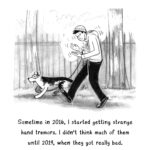John Mulaney, the acclaimed comedian known for his sharp wit and relatable humor, recently sat down with GQ for an insightful interview that spanned a range of topics from the nuances of parody law to the ever-evolving landscape of television and the nature of fear itself. This conversation offers a compelling glimpse into Mulaney’s comedic mind and his perspectives on the industry and the world around him.
One particularly intriguing point Mulaney touched upon was the legal framework surrounding parody in comedy. Using a humorous, if slightly absurd, example involving Hall and Oates, he illustrated the critical distinction between commentary and true parody. He explained that simply changing lyrics to address a different topic, like healthcare privatization, doesn’t necessarily constitute parody if it doesn’t directly engage with the original song’s content. His “Public Nose” example, while self-deprecatingly labeled as “garbage,” effectively clarified the legal requirement for parody to directly interact with and transform the source material. This exploration into the “legal standards and practices and ramifications of comedy” reveals Mulaney’s intellectual curiosity and his appreciation for the intricacies of his craft, aspects honed during his time in network television.
The interview also delved into Mulaney’s experience with network television, specifically his sitcom that “didn’t pan out.” Reflecting on this past project, Mulaney considered the current television environment, where streaming services and networks seem more open to diverse concepts and creator visions. When asked about revisiting the sitcom format, he expressed a willingness to try again, perhaps even with the same show, but with a refined approach to audience engagement. He acknowledged a potential disconnect in how his comedic intentions were received, suggesting a desire to better communicate the show’s intended absurdity and deviation from typical sitcom tropes. Mulaney envisioned a sitcom that deliberately avoided clichés, focusing instead on bizarre and unexpected scenarios – haunted houses, misplaced three-legged dogs, and elaborate, impractical solutions. This desire to subvert expectations and explore unconventional comedic territory underscores his unique comedic voice.
However, Mulaney also expressed a degree of uncertainty about his place in the current television landscape, acknowledging the abundance of “good television” available today. He questioned whether he had something truly unique or necessary to contribute to the medium at this point. This introspection highlights a key aspect of Mulaney’s comedic persona: a blend of confidence and self-awareness. He jokingly likened himself to Spider-Ham, “sort of never relevant and therefore kind of never irrelevant,” suggesting a comfort in occupying a space outside of fleeting trends. This perspective allows him to appreciate the value of comedy that may not be overtly timely but possesses a timeless, absurdist appeal, as exemplified by his hope that audiences would appreciate sketches like “We’re On a Plane To Nowhere” with Dave Byrne, even amidst global events.
Transitioning to a more personal note, the GQ interviewer shifted the conversation towards fears, referencing a segment from Mulaney’s show Sack Lunch that explored this theme. In the context of 2020 and its pervasive sense of isolation, Mulaney reflected on how the experience has highlighted the fundamental human need for connection. While not explicitly labeling isolation as a new fear, he articulated a deeper appreciation for the crucial role of human interaction in making life meaningful. Interestingly, despite the profound shifts of 2020, Mulaney revealed that his “major fear remains the same, which is the Russian mafia.” This unexpected and somewhat absurdly specific fear injects a dose of classic Mulaney humor into an otherwise thoughtful reflection on more universal anxieties.
Ultimately, John Mulaney’s GQ interview provides a multifaceted portrait of a comedian deeply engaged with his craft, the entertainment industry, and the complexities of the human experience. From dissecting parody law to contemplating his sitcom legacy and confronting existential and comical fears, Mulaney’s insights are as entertaining as they are thought-provoking, solidifying his position as a unique and compelling voice in contemporary comedy.

